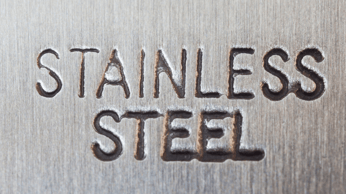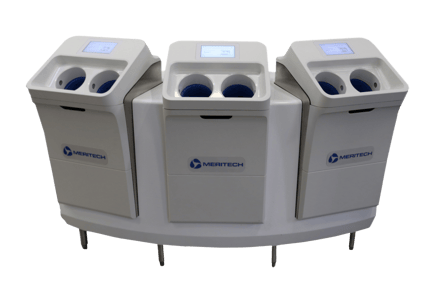Is Stainless Steel or PC/ABS Better for Food Processing Equipment?
Stainless steel equipment is a staple in food processing facilities across the globe. So much so that it has gained a reputation for being one of the most hygienic materials to build food processing equipment with. But is it the only type of hygienic material? How does stainless steel hold up when compared to PC/ABS (polycarbonate/acrylonitrile-butadiene-styrene) plastic for example? Find out below.
What type of food processing equipment should you choose?
 Several factors such as the specific application, the type of food being processed, and the requirements of the equipment will determine whether PC/ABS plastic or stainless steel is the right choice for a food processing equipment. Its high strength, durability, and resistance to corrosion and staining make stainless steel a popular choice. For food safety and contamination prevention, it is also easy to clean and sanitize.
Several factors such as the specific application, the type of food being processed, and the requirements of the equipment will determine whether PC/ABS plastic or stainless steel is the right choice for a food processing equipment. Its high strength, durability, and resistance to corrosion and staining make stainless steel a popular choice. For food safety and contamination prevention, it is also easy to clean and sanitize.
Alternatively, PC/ABS plastic provides excellent impact resistance, chemical resistance, and toughness. It is commonly used for boat hulls, car parts and medical devices after all, just to name a few. It is also lightweight and can be easily molded into complex shapes that can fit different needs and allow for a more hygienic design. Despite its durability, it may not be as resistant to extreme high temperatures as stainless steel is.
Both options offer durability and easy cleaning so the ultimate choice will come down to what type of equipment you’re looking for. When we designed our latest CleanTech® EVO Automated Handwashing Stations we weighed both options based on our decades of experience in hygiene for food processing. We ultimately choose a combination of the two but primarily developed the outer shell with PC/ABS plastic due to its similar durable benefits but also since it is more aesthetically pleasing to the average user. A stainless-steel hand washing device that requires a user to place their hands in might cause apprehension. The benefits of increased usage for hand hygiene compliance and food safety cannot be overstated.
Learn more about how CleanTech® EVO helps to improve compliance
How PC-ABS plastic is a great option for hygiene equipment
As long as the material is used and maintained properly, polycarbonate plastics remain a healthy option for food safety equipment. Firstly, PC/ABS is FDA-approved for food contact applications, and it complies with the strict regulations for food safety. Secondly, PC/ABS is non-porous, which means it does not absorb moisture, oils, or bacteria. It also resists stains, odors, and chemical damage, making it easy to clean and sanitize. Proper cleaning and sanitization are critical for maintaining hygienic conditions in food safety equipment, and PC/ABS plastic can withstand rigorous cleaning processes without degrading or losing its properties. 
Lastly, PC/ABS plastic is already widely used in various food items, such as food containers, utensils, and processing equipment, without significant health concerns. Overall, PC/ABS plastic remains a hygienic option for food safety equipment due to its FDA approval, non-porous nature, and resistance to stains, odors, and chemical damage. As long as it is used and maintained correctly, it can be a safe and reliable alternative to stainless steel for food safety purposes.
Learn more about the makings of CleanTech® EVO works in our latest webinar






